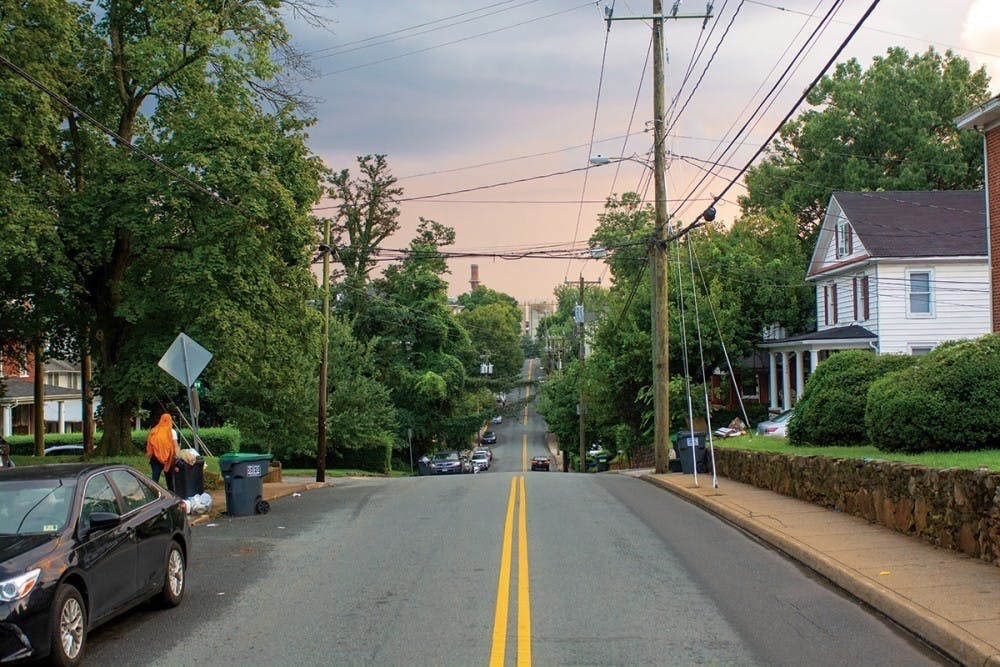As the legislative session of the General Assembly comes to a close, housing — one of the most universal issues for Virginians — has been largely overlooked. One bill introduced by Delegate Ibraheem S. Samirah, D-86, would have allowed for increased zoning density to allow more than single-family housing. The logic behind this is that in high levels of single-family zoning, cities like Richmond, Charlottesville and Crystal City could have more units built, lowering costs through the process of market equilibrium. It is supply and demand, more units of housing means more competition between landowners and more options for tenants leading to lower rent. Supply isn’t the central problem of housing though. The lack of affordable housing in Virginia as well as around the country is not one of a mistaken market outcome, but of a central conflict between corporate power and working-class people. While zoning changes can provide a benefit at the margins, they do not address this power imbalance. To do this, we need to organize a tenant movement, fight for social housing and establish just cause eviction laws and rent control— measures that challenge the power of real estate.
I’ve written before about the coming crisis of housing with Amazon entering into Northern Virginia. I want to expand this by pointing out the most predictable cycle of displacement that’ll occur. Amazon will expand the labor force by bringing in higher-income residents that then displace lower-income working class people, subsequently starting a process of displacement through high rent. Rent control — where rent increases are capped — has shown to be an effective form of preventing gentrification. Rent control alone cannot fix the housing problem, but it can strike a blow against the unlimited desire for profit extraction that the process of gentrification enables. Neighborhoods with rich cultures and history being turned over in favor of wealthier residents is the wrong outcome of city planning. In places like Charlottesville, this represents itself in the continued displacement of working-class residents to outer edges of the city and Albemarle county.
In Charlottesville, the apparent issue of single-family zoning has been front and center in housing policy and the Comprehensive Plan. There’s a real basis to this — 55 percent of land in Charlottesville is zoned for single-family housing, meaning that the literal space needed to build more housing is hard to come by. In the next 20 years, Charlottesville needs around 4,000 homes. I want to suggest though, that this is only a small piece of the issue that needs to be addressed for a long-term solution.
Charlottesville faces a few coinciding challenges that require direct confrontation with corporations and the University. First, Charlottesville rents have risen 2.2 percent in the last year. More broadly, 17,000 people in Charlottesville and Albemarle are rent burdened, meaning they spend more than 30 percent of income on rent. As income goes down, the availability of affordable housing goes down more and more. Seventy percent of families making 30 percent of the Area Median Income, or AMI, are rent burdened. Around 65 percent of families making between 30 and 50 percent are rent burdened in addition to 43 percent of families making between 50 and 80 percent AMI that are rent burdened. Even those making between 80 to 100 percent AMI have a relatively large burden, with 27 percent paying too much. With rising rents, the issue of housing extends beyond just lack of units. Keeping housing affordable remains a crucial task that simply increasing supply won’t address. This is combined with the intention of billionaire parasite Jaffrey Woodriff's vision of transforming Charlottesville into a wealthy tech hub. Any hope to preserve Charlottesville must incorporate both increased supply and rent control, otherwise tenants will be at the whims of property owners.
The simultaneous undercurrent of the housing shortage in Charlottesville is the University of Virginia. Understanding the University as a corporation feeding off of the labor and land of the community allows us to understand the administration and leadership as the targets of ire for the housing crisis Charlottesville now faces. With a need for 4,000 units over the next 20 years, one has to ask, how did we get here? Simply focusing on zoning or supply ignores the predatory relationship of U.Va. and Charlottesville. Between 1992 and 2017, the student population exploded at U.Va. Rather than investing in the creation of permanent student housing, the University opted to place the burden of housing students on the private market. According to information obtained from Institutional Research and Analytics, over the last 25 years the University has let the private market account for 85 percent of student housing growth. On-Grounds housing only increased by 717 units while the private market accounted for 3,946 more units. This happens to line up with the housing shortage over the next 20 years. The enemy is not a misallocated market — it is the corporate university that has refused to house its own students.
What this tells us is that fighting the housing crisis is not a matter of correcting the market and letting milquetoast reforms save things from merely getting worse. A true, long term solution involves curbing the power of landlords through rent control, organizing tenant unions in all types of apartments, building state-owned social housing and demanding the University pay to repair the crisis it has helped cause.
Jacob Wartel is an Opinion Columnist for The Cavalier Daily. He can be reached at opinion@cavalierdaily.com.
The opinions expressed in this column are not necessarily those of The Cavalier Daily. Columns represent the views of the authors alone.
CORRECTION: a previous version of this article spelled Jaffray Woodriff's name incorrectly. It has been corrected to reflect the correct spelling.







